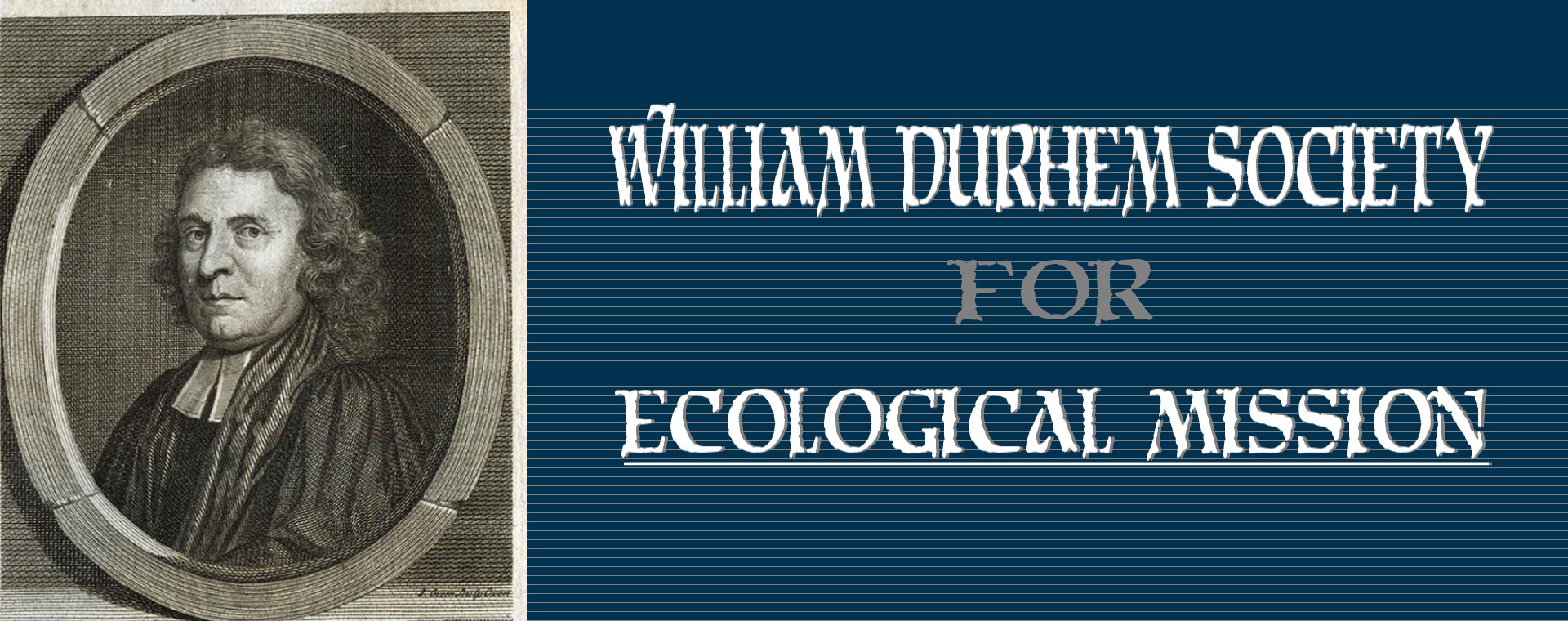WILLIAM DERHAM SOCIETY
Dr. William Durhem, F.R.S. was one of the minor but not insignificant physico–theologians who endeavored to bolster conventional theology by associating it with the scientific interests of the half century or so that followed the founding of the Royal Society in 1660. Educated at Blockley Grammar School and Trinity College, Oxford, he was ordained deacon (1681) and priest the following year. As an Anglican clergyman, he served as Vicar of Upminster for the greater part of his life, a living he took up in August 1689. Derham's first book, The Artificial Clock‐Maker, was published in 1696. He was later installed as Canon of Windsor in 1716. A friend of Isaac Newton and an active fellow of the Royal Society during the latter's presidency, Derham was acquainted with Edmond Halley, John Pound, James Bradley, the naturalist John Ray (whose papers he edited), and others of eminence.
Historical Significance
As far as his significance for Ecological Mission, he held notable and influential views on the design of creation as well as his integration of ecology and theology. Derham is best known as one of the founders of “natural theology”, which is pretty well defined by the title of Derham’s most influential book, Physico-Theology: Or, A Demonstration of the Being and Attributes of God, from his Works of Creation (1713). Natural theologians (the rubric would include Robert Boyle, John Ray, and Nehemiah Grew, as well as Derham) believed that one could learn about the Wisdom and Providence of the Creator by studying the Book of Nature, the indispensable companion to the Book of Scripture.
Projects the Society Supports
The society supports the types of projects found in the School of Ecological Mission’s (SEM) academic offerings—namely in the Environmental Studies and Ecology and Biodiversity Departments. These consist of scholarships for students as well as the work of professors and students as they do projects related to partners, centers and institutes affiliated with Missional University.

Who Was William Durhem?
Life Span: 26 November 1657 – 5 April 1735 (aged 77)
Background: William Derham was the son of Thomas Derham. He was born at Stoulton, in Worcestershire, England. He was educated at Blockley, Gloucestershire and at Trinity College, Oxford from 1675 to 1679.
Occupation: Dr. Derham was ordained on 29 May 1681. In 1682, he became vicar of Wargrave, Berkshire and from 1689 to 1735 he was Rector at Upminster, Essex. While at Upminster, in 1716 he became a Canon of Windsor and the vestry minutes show that thereafter he divided his time between those two places.
Missional Significance: Among the best known of his works are Physico-Theology, published in 1713; Astro-Theology, 1714; and Christo-Theology, 1730. All three of these books are teleological arguments for the being and attributes of God. His missional legacy is in the field of eco-theology: he was a recognized English clergyman, natural theologian, natural philosopher and scientist.
